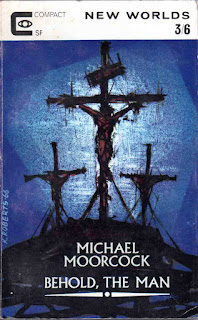Asimov, Isaac. "The Last Question." Science Fiction Quarterly, November 1956.
This article is part of my attempt to read the 155 stories currently (as of 1 November 2022) on the ISFdb's Top Short Fiction list. Please see the introduction and list of stories here. I am encouraging readers to rate the stories and books they have read on the ISFdb.
ISFdb Rating: 9.14/10
My Rating: 8/10
"The last question was asked for the first time, half in jest, on May 21 2061, at a time when humanity first stepped into the light."
Once human's learn to utilize the energy of the sun, and begin to populate the galaxy, the perpetual question that haunts us is can the rate of entropy be decreased? Or, in other words, can humanity continue to exist after the end of everything? Over centuries, the same question is asked, in various ways, of each period's most powerful computer, beginning with Multivac, and over the centuries the same response is given: "INSUFFICIENT DATA FOR MEANINGFUL ANSWER."
Asimov is not only interested in humanity's desire for survival, but looks also at our evolution. As we continue to populate the galaxy and the galaxies, leaving Earth further behind, humans transcend our most basic attributes, and despite less form and greater intelligence, the need for our race to go on remains as strong as is ever was.
While I tend to be mixed about Asimov--I love the ideas but the stories don't always live up to them--this is among my favourites of his. For such a short piece, there is so much happening, and the simple writing, with bits of Asimov humour, truly helps the ideas take the forefront of a story made up of vignettes that are actually variations on a theme.
It is interesting that Asimov posits that computers will continue to enlarge as they become more advanced, and the technology to reduce their size will only become reality a thousand or so years in the future. It will get to a point that a computer will fill the inside of an asteroid. If this were true, imagine how large our phones would be today.






















